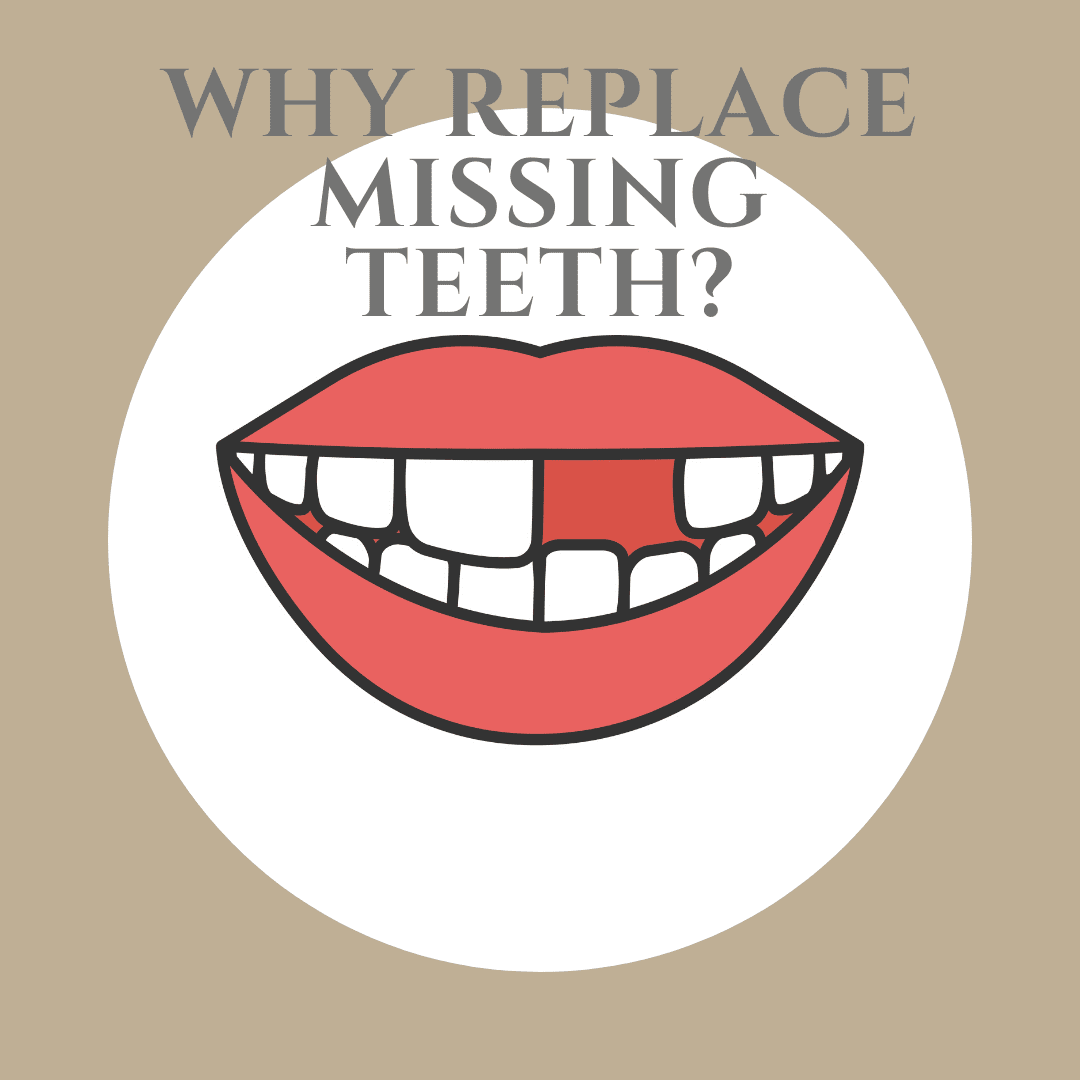Why Replace Missing Teeth

If you have recently lost a tooth, you may find yourself wondering if it is worth the money and trouble to have it replaced. If this missing tooth is towards the back of your mouth and is not noticeable, you may also be wondering why to replace it since no one will notice anyways. While you may think there are no consequences to having a gap in your mouth, this is not the case.
In fact, there are several consequences that can occur as a result of not replacing a missing tooth. These consequences are amplified depending on the number of missing teeth, but even a single missing tooth can cause a variety of issues. Therefore, your dentist always recommends replacing missing teeth to prevent future dental health complications. Here are some examples of things that can happen if you don’t replace missing teeth:
Shifting Teeth
When a gap is left in the mouth, eventually the teeth surrounding the gap will begin to shift sideways in order to fill in the gap. This works like a snowball effect, meaning that each adjacent tooth will shift. The end result is an entire mouth of teeth that are no longer in their proper positions.
Damaged Teeth
Once teeth have shifted, chances are they will no longer fit properly with the opposing teeth. Because of this, the top and bottom teeth can meet at odd angles while chewing, biting, or speaking. Certain types of pressure, as well as being hit at certain angles, can cause teeth to chip or crack more easily.

TMJ Problems
Not only does shifting teeth cause the possibility of damage, but it changes the entire alignment of the bite. In doing so, this can place additional strain on the temporomandibular joint. As a result, painful symptoms such as headaches, facial pain, earaches, and jaw pain can occur. This can also lead to restricted jaw function.
Cavities
Teeth that are not properly aligned tend to wear down faster because they are constantly being exposed to excessive force. This can cause the tooth enamel to become thin, which gives tooth decay an advantage. Additionally, damaged teeth are more likely to become decayed because they offer bacteria a direct route inside the tooth.
Overgrowth
In some cases, the teeth opposing a gap will grow longer as a way of filling in the gap. This is partially due to the fact that opposing teeth rely on the oppositional forces of chewing to maintain their growth rate. If this opposing force suddenly disappears, the tooth will continue to grow to an abnormal length.
As you can, replacing missing teeth is an important dental practice used to maintain your oral health by preventing a number of dental issues. Most of these dental issues are related to one another, meaning that you will likely develop multiple issues if you do not replace your missing tooth. To prevent these issues and avoid future treatment costs, schedule a consultation with your local dentist office to discuss restoration options for missing teeth.

Dr. Lila Nabi earned her Doctor of Medical Dentistry (DMD) at the University of British Columbia and is a member of the following dental organizations: AACA, CACD, BCDA, CDA, BCDS, and KIA. She has completed extensive continuing education courses at the world renowned Kois Centre in Seattle, Washington, Oral Surgery Externship program at Loma Linda University, LA. She has also participated in over 200 hours of continuing education at the Spear Centre in Phoenix, Arizona led by Dr. Frank Spear. Dr. Nabi is active in an ongoing Implantology Study club in Vancouver.











